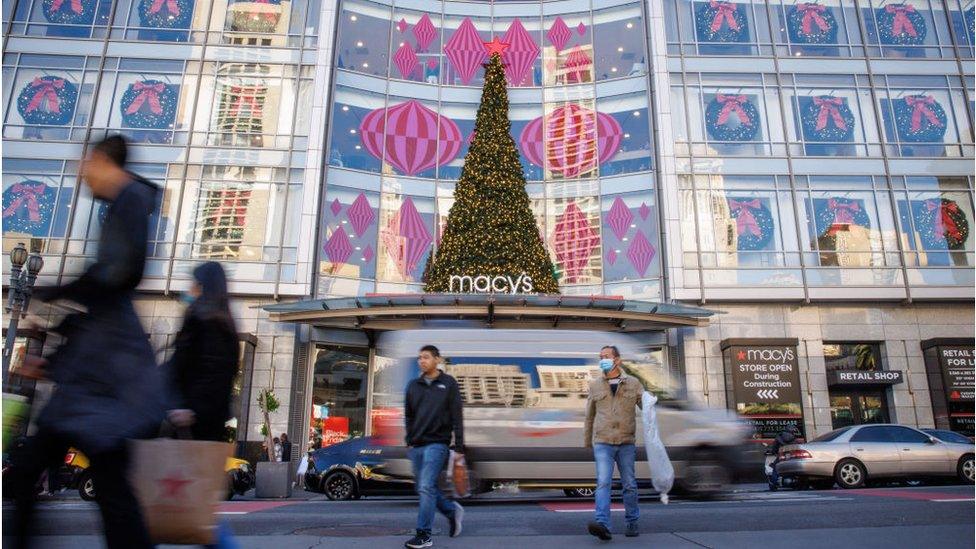Macy's shares surge on hopes for $5.8bn buyout
- Published

Analysts say investors may be eyeing Macy's property portfolio
Shares of US department store Macy's have surged on hopes of a $5.8bn (拢4.6bn) buyout deal.
An investor group has offered to pay $21 for each share of the retailer that they do not already own, according to US media, which cited unnamed sources.
Macy's, founded 165 years ago, is famous for hosting the New York City Thanksgiving Day parade.
The company, parent of Bloomingdale's and makeup firm Bluemercury, operates more than 720 stores in the US.
The offer values the firm's shares about 20% more than the $17.39 they were worth on Friday, before reports of the proposal emerged in the media.
Macy's declined to comment, as did Brigade Capital Management, one of the firms reportedly involved in the bid.
The other, Arkhouse Management, did not respond.
Macy's is one of the last names left from the era of big department stores.
It has faced years of struggle, as buyers drift away from shopping malls, low-cost competitors ramped up and the company closed stores.
Sales peaked in 2014, and the business was hit hard during the pandemic when clothing purchases shrank sharply.
In June, it cut its annual profit and sales forecast.
Overall, sales are down about 7% in the nine months to October compared with the same period last year, according to its update for investors last month.
Analysts said Arkhouse, a property investor, may be interested in the company's sizeable bricks-and-mortar footprint.
The investor group already reportedly has a stake in the business, which had seen its share price take a battering this year, falling to less than $11 at one point as investors soured on its prospects.
Macy's shares opened higher on Monday, trading at about $20 apiece. They closed at $20.77, up more than 19%.
Reports of the deal also helped to lift shares of rivals, including Kohl's and Nordstrom.
Macy's is the product of a 2005 megamerger, which subsumed regional department store names such as Hecht's and Filene's.